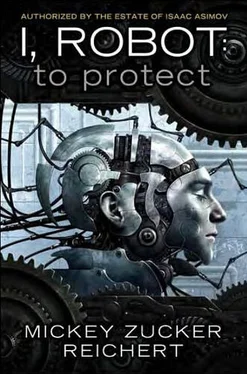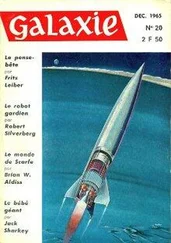Never taking his eyes from the card, Remington frowned at her. “Not a chance. I asked you, remember?”
“But I picked the place.”
“Yes.” Remington finally looked at Susan. “And thank you. You’re a cheap date.”
“Why pay more than you have to for food this good?”
“For sure.”
Remington fed the bill into the tableside pay slot. When the right amount flashed up, he inserted his bankcard. The machine clicked, a green light came on, and the card returned. “Who’d have thought they’d find a new use for those ancient computer cards?”
Susan recalled her grandmother mentioning this, also during a restaurant payment. She had talked about a time when computers needed individual programmed cards just to work each step. She had once dropped a two hundred–card program that had taken months to write. From then on, she had painstakingly penciled page numbers on all her cards.
Of course, the restaurant cards were much sleeker and smaller than the old-time ones, which her grandmother described as the size of a three-by-nine-inch mailing envelope.
Remington rose. “Now, how do I get you home?”
“Just put me on the number seven tram, and I’ll get right to the complex door.” Susan also stood up. The mingled odors of sauces no longer enticed now that she felt comfortably full. The décor was simple: Chinese paper lanterns dangling over each table and stylized paintings of koi on the walls. “Which one do you take home?”
“The five.” Remington put an arm across Susan’s back to guide her safely to the door. “But I’m not going home yet. I want to check up on my last postsurgical patient.”
Susan remembered. “Starling?”
“Yup.”
Susan consulted her Vox as they passed through the door onto the now-dark street. “But it’s after nine.”
Remington shrugged. “That’s the positive side of surgeons. We’re dedicated.”
Susan could scarcely deny it, at least when it came to Remington. “Clearly. But doesn’t that defy the humane residency laws, the ones put in place to ensure we get sleep, food, and . . . a life? To make us safer doctors.”
Remington shook his head. “The humane residency laws only define the hours they can make us work. We can volunteer extra if we wish, and I don’t know a surgery resident who doesn’t.”
Susan got it. “So, anyone who follows the letter of the laws looks like a piker and suffers for it.”
Remington shrugged. “I suppose. But I’ll get home in time to sleep. I already ate, and I just finished a wonderful date.”
“Wonderful?” Susan could not help smiling. She found herself edging toward him.
Remington swept her into an embrace. They kissed there on the street, just outside the Golden Chopstick, the taste of house lo mein and chicken broccoli still on both their lips. A tingle traversed Susan, and she found herself pressing closer to him. She had never felt both so comfortable and so wildly excited. She wondered if it would surprise or bother him to find out she was still a virgin.
As the kiss ended, Susan whispered into Remington’s face. “Do me a favor.” She did not wait for him to agree. “If you have the time, go to the charting room and say good night to Nate.”
Remington stepped back, and Susan cursed herself for mentioning another man at that intimate moment. She silently berated herself, No wonder I’m still a virgin.
“Do you think he’ll still be at the hospital? This late?”
Susan said cryptically, “I can virtually guarantee it.”
When Susan arrived at the first-floor charting room, she found Remington Hawthorn and N8-C sitting across from each other and engaged in spirited conversation.
Already dressed in his scrubs, Remington was speaking. “. . . it’s intradural, intramedullary with decreased posterior column sensation, pain localized to two fingers’ breadths over the lower spine, no correlation with time of day.”
Nate did not hesitate. “Family history? Maybe . . .”
“Von Hippel-Lindau,” they said together, then laughed.
Spotting Susan, they went silent.
“Good morning,” she said cheerily.
“Good morning, Susan,” they replied, still simultaneously. Then, they looked at each other and laughed again.
Susan perched on the arm of Remington’s chair. “You’re scaring me.”
“He’s amazing,” Remington admitted. “Makes me wonder how many thinking robots we already have on staff. Some of the guys I work with don’t show any emotion at all.”
“I’m the only humanoid robot at Hasbro,” Nate said. “I cost in the range of one hundred million dollars. And I do show emotions, when it’s appropriate.”
“So you figured it out on your own.” Susan had not expected Remington to identify Nate so quickly. Nate had told her his status almost immediately, but he had recognized her name and knew she had the family robotics background to believe him. “And you know it’s true?”
“Given our prior conversation at the restaurant, finding him here after ten p.m. yesterday and before seven a.m. today was a dead giveaway.”
Nate smiled. “I’d like to point out you were also here after ten p.m. yesterday and before seven a.m. today.”
Susan sucked in her lips, but she knew her eyes revealed her amusement.
“Well, yes,” Remington admitted. “But I can’t peel off the skin of my leg and reveal circuitry wrapped around my muscles, can I?”
Susan could not resist teasing, “Can you?” Nate had not given her the same amount of proof; she had not required it.
Remington reached for Susan’s hand, caught it, and gave it a squeeze. “How about I prove it after our date on Friday?”
Susan could not recall making one. “Do we have a date on Friday?”
“I guess that’s up to you.”
Susan clasped Remington’s fingers. “Friday, it is. How’s Starling?”
“Great.” Remington rose, released her hand, and looked at his Vox. “They moved her from intensive recovery to the regular unit this morning. I’d stop down today if you want to see her before she leaves.”
“Today?” Susan could scarcely believe it. “You mean discharge? Home? Already?”
“I told you we’re quick.” Remington shrugged. “No reason to keep her.” He tapped the Vox. “I have to go. If I’m late for rounds, I’ll get stuck with hole-drilling duty for a week.”
Susan preferred not to know what that entailed. She waved as he rushed out the door, then turned to Nate. “What do you think?”
“Of Remy?”
“Yeah.”
Nate did not spend long in consideration. “I like him.”
“Me, too,” Susan admitted. “What were you two doing when I came in?”
“Talking neurosurgery.” Nate made a vague gesture toward the books. “You know, I was programmed to perform menial jobs: transporting patients, consent signing, cleanup, surgery prep, hand holding, bed making.”
“Really?” It seemed a ridiculous waste of his brilliance.
“Then, staff started worrying I’d take their places, lawyers speculated a malfunction might drive me berserk, and fear of more protests drove me into seclusion.”
Susan glanced around the large room with its shelving, bric-a-brac, and old-fashioned textbooks. Since she had come here her first night on call, she had developed an appreciation for the quiet nook with its simple table, its clashing chairs, its comfortable couches. She could think of far worse prisons. “So, you . . . live here?” It seemed altogether the wrong verb for robotic existence. “All the time?”
“Here?” Nate made hand motions to indicate the room. “I’m not a vacuum cleaner stored in a closet, Susan. I spend time in the research tower, when I’m working on a project. I can move about freely within the hospital, if I choose. I just happen to like it here. It’s quiet, so no one bothers me. It’s full of computers and books, adjacent to the central processing area. The only people who come here are residents hiding from work, attendings, or other residents when they find a few moments to spare. And, of course, those few, like you and Remy, who know to look for me here.”
Читать дальше












